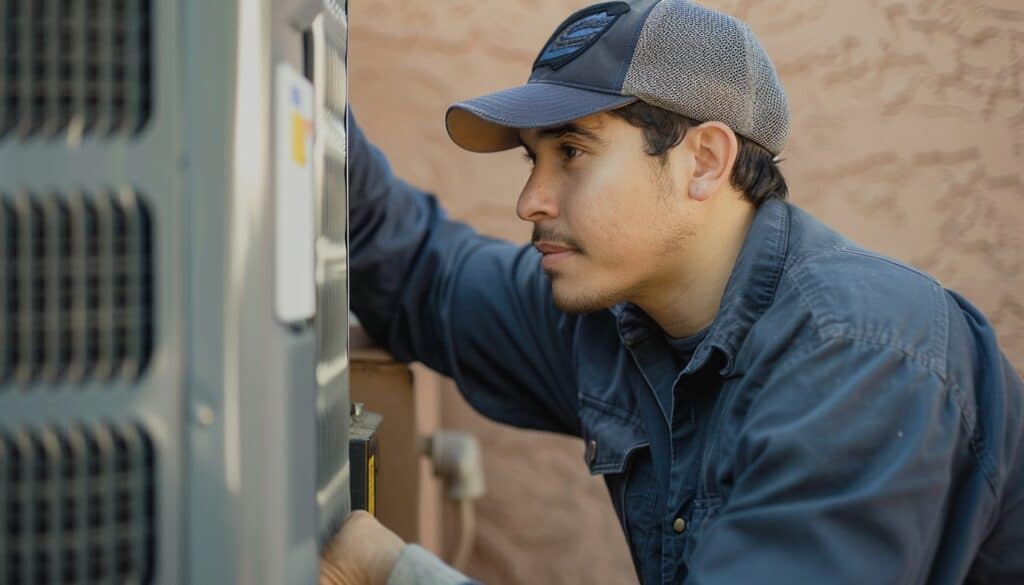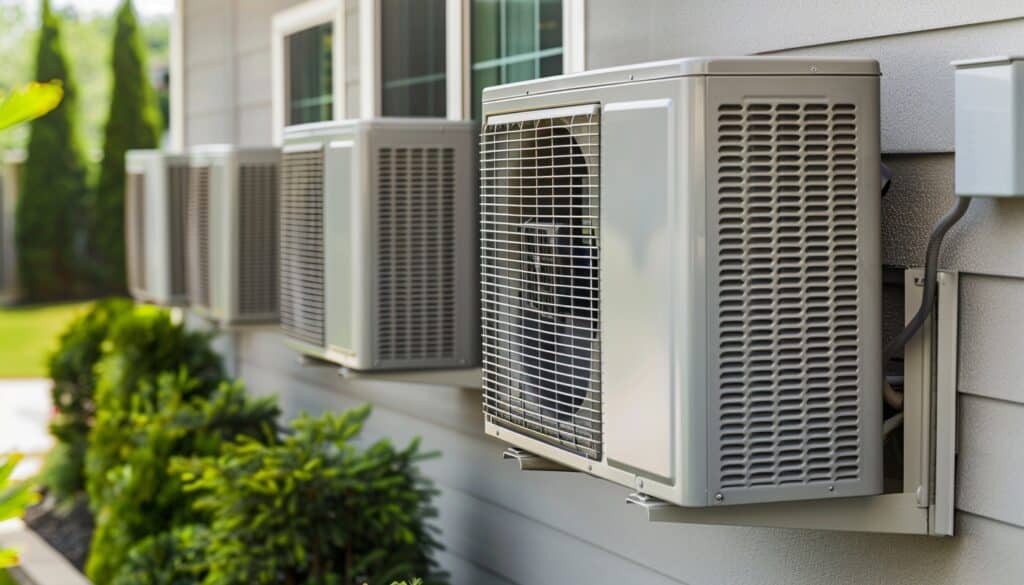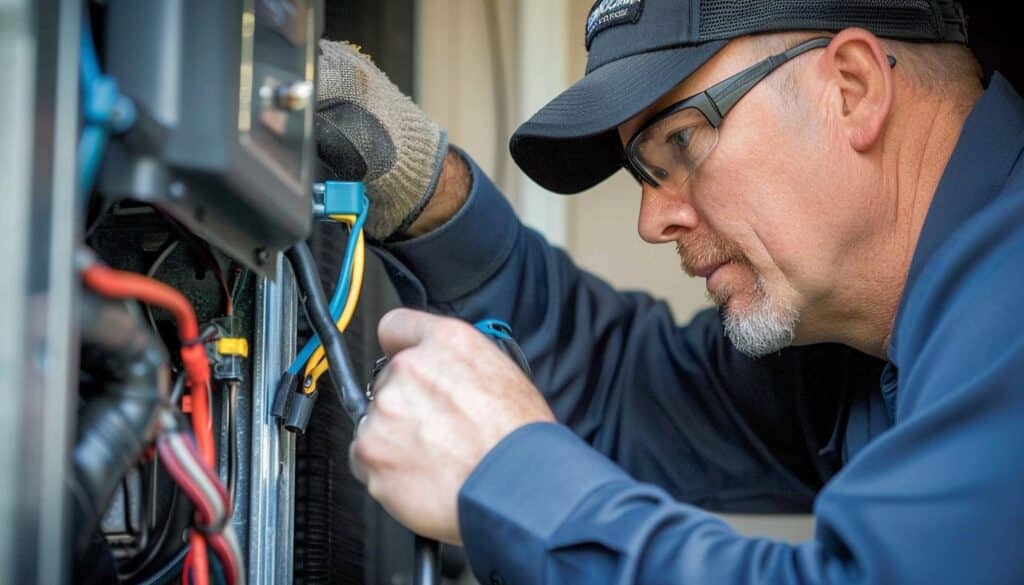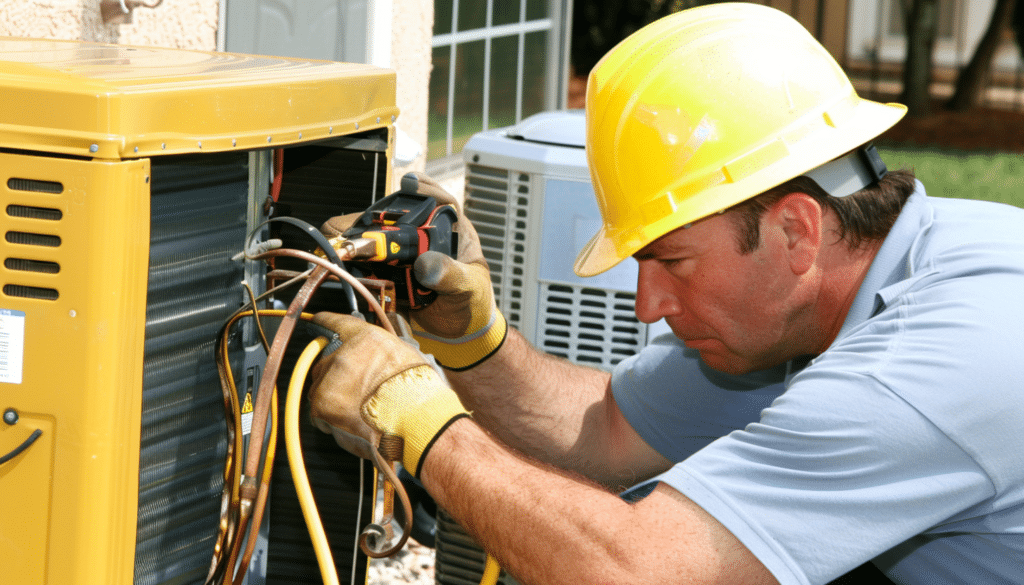Comprehensive HVAC Check-Up: What to Expect and Why
Table of Contents
- Introduction to HVAC Check-Ups
- Why Regular HVAC Check-Ups Are Essential
- Key Components of a Comprehensive HVAC Check-Up
- Benefits of Scheduling an HVAC Check-Up
- Frequently Asked Questions (FAQs)
Introduction to HVAC Check-Ups
An HVAC check-up is a routine maintenance service designed to keep your heating, ventilation, and air conditioning systems running efficiently. Regular HVAC check-ups are crucial for maintaining optimal performance, extending the lifespan of your equipment, and ensuring a comfortable indoor environment. Whether you’re preparing for the sweltering summer or the chilly winter, an HVAC check-up ensures your system is in top shape.

Why Regular HVAC Check-Ups Are Essential
HVAC systems, much like any other complex machinery, require regular maintenance to function properly. Skipping these check-ups can lead to decreased efficiency, higher energy bills, and even complete system breakdowns. Regular HVAC check-ups help identify potential issues before they escalate, saving you time, money, and discomfort.
Benefits of Regular HVAC Check-Ups:
- Improved Energy Efficiency: Regular maintenance ensures that your HVAC system runs efficiently, reducing energy consumption and lowering your utility bills.
- Extended Equipment Lifespan: By addressing minor issues early, you can avoid major repairs and extend the life of your HVAC system.
- Enhanced Air Quality: Regular cleaning and maintenance prevent dust, mold, and other pollutants from circulating through your home.
- Peace of Mind: Knowing that your system is functioning correctly gives you confidence that your home will remain comfortable year-round.
Key Components of a Comprehensive HVAC Check-Up
During an HVAC check-up, a trained technician will conduct a thorough inspection of your system to ensure everything is functioning correctly. Here’s what you can expect:
1. Thermostat Inspection
The thermostat is the control center of your HVAC system. During the check-up, the technician will:
- Verify thermostat settings: Ensuring that the thermostat is set correctly according to your schedule and preferences.
- Test thermostat calibration: Making sure the thermostat accurately reflects the temperature inside your home.
- Check connections: Inspecting wiring and connections for any signs of wear or damage.
This step is crucial for maintaining accurate temperature control, which directly affects energy efficiency and comfort.

2. Air Filter Examination
Air filters play a significant role in maintaining indoor air quality and system efficiency. During the check-up:
- Inspect filter condition: The technician will check if the filters are clogged with dust and debris.
- Replace or clean filters: Depending on the type of filter and its condition, the technician may replace or clean it to ensure proper airflow.
- Recommend filter types: Based on your home’s needs, the technician may suggest upgrading to a higher-quality filter.
Clean air filters are essential for reducing the strain on your HVAC system and improving air quality.
3. Electrical System Check
The electrical components of your HVAC system are vital for its operation. During this part of the check-up, the technician will:
- Inspect electrical connections: Tightening any loose connections that could lead to operational issues.
- Test voltage and current: Ensuring the system is receiving the correct power supply.
- Examine safety switches: Checking that all safety controls are functioning correctly to prevent electrical hazards.
Ensuring that the electrical system is in good condition helps prevent unexpected breakdowns and increases the safety of your HVAC system.
4. Mechanical Components Inspection
The mechanical components are the heart of your HVAC system. The technician will:
- Lubricate moving parts: Reducing friction and preventing wear and tear on components like motors and fans.
- Inspect belts and pulleys: Checking for signs of wear and tension that could cause system failure.
- Examine the blower motor and fan: Ensuring these components are clean and functioning correctly to maintain efficient airflow.
This step is critical for maintaining the smooth operation of your HVAC system and preventing costly repairs.

5. Refrigerant Level Check
Refrigerant is essential for cooling your home. During the check-up, the technician will:
- Measure refrigerant levels: Ensuring the system has the correct amount of refrigerant.
- Check for leaks: Using specialized equipment to detect any leaks in the refrigerant lines.
- Replenish refrigerant if needed: Adding more refrigerant if the levels are low, ensuring your system can cool efficiently.
Proper refrigerant levels are crucial for the efficiency and longevity of your air conditioning unit.
6. Ductwork Inspection
Ducts distribute air throughout your home. Over time, they can develop leaks or become blocked. The technician will:
- Inspect ductwork for leaks: Identifying any areas where air might be escaping.
- Check for blockages: Ensuring there are no obstructions that could restrict airflow.
- Assess insulation: Verifying that ducts are properly insulated to maintain temperature control.
A well-maintained duct system ensures that conditioned air is distributed evenly and efficiently throughout your home.
7. Safety Controls Testing
Safety controls are in place to protect your home and HVAC system. During the check-up, the technician will:
- Test safety switches: Verifying that all safety mechanisms are functioning properly.
- Inspect the heat exchanger: Ensuring there are no cracks or signs of wear that could lead to dangerous situations.
- Check carbon monoxide detectors: Making sure these essential safety devices are operational and properly located.
Safety is a top priority, and this step helps prevent hazards like gas leaks or fires.
Benefits of Scheduling an HVAC Check-Up
Regular HVAC check-ups offer numerous benefits that go beyond just maintaining your system. Here’s why you should schedule one today:
- Cost Savings: Preventive maintenance can save you money by reducing the need for expensive repairs and extending the lifespan of your system.
- Increased Comfort: A well-maintained HVAC system operates more efficiently, ensuring consistent and comfortable temperatures in your home.
- Improved Health: Clean air filters and ductwork reduce the amount of dust, allergens, and pollutants in your home, leading to better indoor air quality.
- Eco-Friendly: Efficient HVAC systems consume less energy, reducing your carbon footprint and helping the environment.
- Peace of Mind: Knowing your system is in good working order allows you to relax and enjoy your home without worrying about unexpected breakdowns.

Frequently Asked Questions (FAQs)
1. How often should I schedule an HVAC check-up?
- It’s recommended to schedule an HVAC check-up twice a year: once in the spring before the cooling season and once in the fall before the heating season.
2. What happens if I skip my HVAC check-up?
- Skipping an HVAC check-up can lead to reduced efficiency, higher energy bills, and the potential for unexpected system failures, which could result in costly repairs.
3. Can I perform an HVAC check-up myself?
- While you can handle simple tasks like replacing air filters, a comprehensive check-up should be performed by a professional technician to ensure all components are thoroughly inspected and maintained.
4. How long does an HVAC check-up take?
- A typical HVAC check-up takes about 1-2 hours, depending on the system’s condition and any issues that need addressing.
5. Is an HVAC check-up worth the cost?
- Yes, the cost of an HVAC check-up is a small investment compared to the potential costs of major repairs or system replacements due to lack of maintenance.
Conclusion
A comprehensive HVAC check-up is a crucial service that ensures your heating and cooling systems are running efficiently and safely. By understanding what’s involved in an HVAC check-up and scheduling regular maintenance, you can enjoy a comfortable, energy-efficient home year-round. Don’t wait until a problem arises—schedule your HVAC check-up today and invest in the long-term health of your home’s system.

